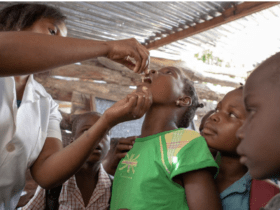
Shame should not come with going to get tested for sexually transmitted diseases, but with the kind of society we operate in, it often does.
However, this should not stop you from making sure that you have not contracted any diseases that could impair your life in the future.
It is important to get tested regularly to avoid any case of “had I known”, especially when you are having sex with a new partner, or leaving a sexual relationship.
ALSO READ: This Could Be The Reason Why You Are Experiencing Pain During Sex
Usually, hospitals will do routine blood and urine tests for all types of sexually transmitted diseases, but this is just to help you look out for and ensure that you are being tested for these ones.
1. HIV/AIDS
This is a disease that affects the immune system by making it weak and unable to resist any kind of bacteria or virus. It is transmitted through blood, semen, and saliva contact.
HIV/AIDS has no cure but can be managed with certain practices and a daily dose of AntiRetroViral drugs. It is important to get tested for this regularly, regardless of the “stigma” that comes from testing for it.
Medical experts recommend that sexually active people with multiple partners get tested every six months.
2. Pap Smear/ HPV Test
Both the Pap smear test and the human papillomavirus (HPV) test look for indicators of cervical cancer. What’s the distinction?
A Pap test looks for abnormal cervical cells in the cervix that, if left untreated, can lead to cervical cancer while HPV screening looks out for the virus (human papillomavirus) that can cause cell changes on the cervix.
Both tests can also detect cervical cancer at an early stage when treatment is most effective.
Cervical cancer is most commonly found in women aged 35 to 44 and is the leading cause of cancer death among women. This is one of the most crucial medical examinations for any woman, particularly in Nigeria.
This is one of the most important medical tests for every woman.
3. Chlamydia
This sexually transmitted infection is contracted through semen and vaginal fluids. Some people do not get symptoms early enough. However, some of the symptoms are painful urination, pelvic aches, bloody urine, and abdominal pain.
Luckily, it is treatable by medical professionals but if it is left for too long, it can damage the reproductive system. Sexually active women are encouraged to test for Chlamydia every year.
4. Pelvic Exam
A pelvic exam involves visually and physically checking the female reproductive system and sexual organs. During the exam, the doctor inspects the vagina, cervix, fallopian tubes, vulva, ovaries, and uterus.
A doctor may advise you to have them more regularly based on your medical history. Unless other health conditions necessitate it earlier, women should get their first pelvic exam at the age of 21. A young woman’s first pelvic exam is often when she goes to get birth control.
Women over the age of 21 should have pelvic exams on a regular basis.
5. Gonorrhea
Gonorrhea is a sexually transmitted bacterial infection that can cause infertility if it is not treated on time.
It is a very common infection in Nigeria as over 1.5m people are estimated to have it. Its symptoms are very similar to that of chlamydia which makes it important to go for testing and get a correct diagnosis.
It is also treatable and can be resolved within days or weeks if it is discovered on time.
6. Genital Herpes
This a genital infection that causes pain and red sores in the genital area. It is spread through sexual contact and has no cure. However, it can be managed to a large extent.
Herpes can also be contracted by kissing someone who has a herpes sore on their lips as the bacteria would be transferred to the body through the mouth fluids.
7. Syphilis
This is also a sexually transmitted bacterial infection. Its earliest symptoms are painless sores on the genitals, rectal area, or mouth. The second stage of symptoms is rashes on the body.
It is treatable by a medical professional when it is discovered on time. If it is not treated on time, it can lead to eye and brain damage, heart failure, and nerve damage.


















Leave a Reply